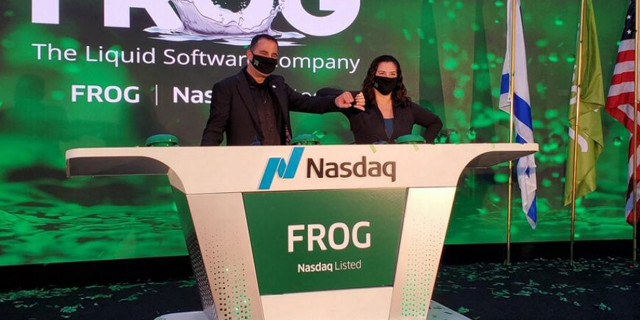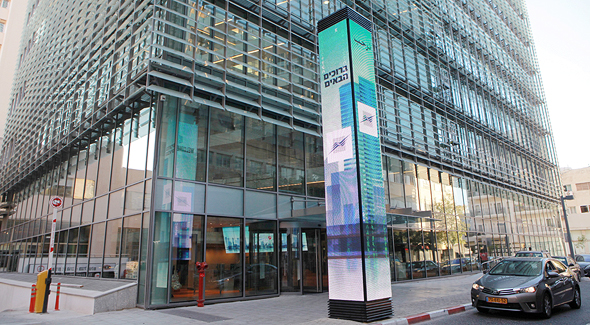
In the absence of acquisitions, IPOs are swooping in to save the tech scene
PwC expert offers three explanations for why going public is replacing M&As as the main route to the coveted tech exit
Though the end of year reports will only come out next month, figures gathered by accounting and consultancy firm PwC Israel on local exits in the third quarter of 2020 reveal that while the number of exits has fallen significantly in comparison to last year’s Q3, there has been a sharp rise in their overall valuation. This is credited to a single outstanding trend: a leap in huge public issuances of Israeli companies.
Thirteen exit deals (M&As and IPOs) took place during the third quarter of 2020, compared to 20 over the same period last year. But when it comes to the valuation of these deals, the number has skyrocketed by $5.7 billion, from $1.3 billion in Q3 2019 to $7 billion this year, marking a 438% increase. The rise is attributed to six large-scale IPOs that took place in the recent quarter, at a total value of $6.1 billion (compared to four IPOs at a total value of $500 million in last year’s third quarter). All in all, IPOs made up 87% of the total valuation of exit deals in Q3 2020.
These figures are so decisive that they force the question of whether they are a flash reaction to the Covid-19 crisis or the beginning of a new trend that will remain with us long term. “The wave of IPOs will not go away,” asserts Yaron Wiezenbluth, hi-tech partner at PwC Israel, “We will see the trend continue in the fourth quarter of 2020 and even more forcefully in the first quarter of 2021.”
Wiezenbluth points out three factors that combined to create the new trend: “The first is a decline in the number of deals. It has become harder and harder for small and young startups to raise capital, resulting in a significant drop in the number of small and medium exits. Part of it is due to the pandemic, during which giant companies only make strategic decisions, but part of it is due to a trend that has intensified,” he said.
“The second factor is that the local and global capital markets have embraced technology companies and we are witnessing a wave of IPOs the likes of which we haven’t seen since the dot.com era. The story behind the leap in IPOs is that the market is willing to grant Israeli companies insane valuations. Israeli companies have waited a long time for this moment. Covid-19 has done the markets well. It gave them a wake-up call and made them realize projected valuations.
“The third factor is that in a world of uncertainty entire industries have disappeared and others rose up in their place. The technology sector grew at the expense of other sectors and even within the tech world, we are seeing the strong companies getting even stronger. So while big companies chose to go public, smaller companies get entangled in the crisis and face difficulties holding on,” Wiezenbluth added.
Where did all the buyers go?
PwC’s data reveal that if it weren’t for a relatively small number of huge deals, mostly IPOs, we’d be looking at a very weak third quarter. It was the giant IPOs of Jfrog ($3.2 billion), Lemonade ($1.6 billion), and NanoX ($800 million) that made all the difference. For comparison’s sake, the largest issuance of last year’s third quarter was InMode’s $450 million IPO. It is a continuation of a trend from the second quarter of 2020, that may have featured a larger number of deals (20) but 80% of their total value came from two deals: the acquisition of Checkmarx by American private equity firm Hellman & Friedman ($1.1 billion) and the acquisition of Mobileye by Intel ($800 million).
Apart from the reasons Wiezenbluth cited for the jump in public issuances, there has also been a decline in the number of mergers and acquisitions, which is apparently feeding the appetite for IPOs. The main cause of the decline is the disappearance of many of the potential buyers. Giant tech companies have always been the major buyers of Israeli companies, whether it’s Microsoft devouring many cyber companies or Intel in the field of microprocessors and autonomous vehicles, but the last few months have indicated that these companies are avoiding making acquisitions that don’t strengthen their core business. The companies behind most small and mid-sized deals, meanwhile, tended to be global corporations that aren’t essentially tech companies and these likely won’t be forking out hundreds of millions of dollars for acquisitions at the moment.
In addition, the market’s preference for tech companies and the lack of financial certainty are expected to make many companies prefer to purchase services rather than acquire companies. This results in a dim outlook for medium-sized exits going forward, in part because the major New York and London stock exchanges are generally unwelcoming of modest IPOs. As a substitute, Israeli companies re-discovered the local stock exchange, after having ignored it for many years. Many have even preferred to go as far afield as Australia or Canada. According to Wiezenbluth, “We will see a large wave of more modest local IPOs in the upcoming quarter, which provides hope for the smaller companies.”
Asked whether the Tel Aviv Stock Exchange is just a temporary solution for Covid-19 times, Wiezenbluth said: “Time will tell. Either the Israeli exchange will be able to produce analysts and trade that will justify local issuances, or it will be a springboard to the U.S. exchanges. In such a case we may see $100 million to $300 million IPOs in Tel Aviv and a couple of years later the companies will advance to the big leagues abroad.”
The issuance of major companies, by Israeli standards, on the local exchange no doubt spells good news for the local market. As opposed to being acquired by a foreign company, going public locally means a company can hit the next stride, while still remaining Israeli. That said, there is still a gap in the Israeli tech sector, with early stage investment starting to dry up.
Even in the midst of a global pandemic, Israeli companies registered a record-breaking $2.74 billion in 151 investment rounds in the third quarter of 2020. Most of that capital, however, went to 20 companies, each raising more than $50 million according to a IVC-ZAG report from October. Young companies, meanwhile, are finding it difficult to find investments: the median size of seed investment rounds declined substantially from a level of $0.9 million to $1 million between 2016-2019 to just $0.15 million in 2020.
The danger is not limited to a “lost generation” of Israeli startups, rather there is a danger of an entire ecosystem of investors and local venture capital companies losing relevance. If they don’t start taking on the risks of investing in early stage companies, they may lose their vitality and be downgraded to the role of investment scouts for foreign funds.


